 W
WSamir Amin was an Egyptian-French Marxian economist, political scientist and world-systems analyst. He is noted for his introduction of the term Eurocentrism in 1988 and considered a pioneer of Dependency Theory.
 W
WGiovanni Arrighi was an Italian economist, sociologist and world-systems analyst, from 1998 a Professor of Sociology at Johns Hopkins University. His work has been translated into over fifteen languages.
 W
WIn political science, the term banana republic describes a politically unstable country with an economy dependent upon the exportation of a limited-resource product, such as bananas or minerals. In 1904, the American author O. Henry coined the term to describe Honduras and neighbouring countries under economic exploitation by U.S. corporations, such as the United Fruit Company. Typically, a banana republic has a society of extremely stratified social classes, usually a large impoverished working class and a ruling class plutocracy, composed of the business, political, and military elites of that society. The ruling class controls the primary sector of the economy by way of the exploitation of labor; thus, the term banana republic is a pejorative descriptor for a servile oligarchy that abets and supports, for kickbacks, the exploitation of large-scale plantation agriculture, especially banana cultivation.
 W
WPaul Alexander Baran was an American Marxist economist. In 1951 Baran was promoted to full professor at Stanford University and Baran was the only tenured Marxian economist in the United States until his death in 1964. Baran wrote The Political Economy of Growth in 1957 and co-authored Monopoly Capital with Paul Sweezy.
 W
WNikolai Ivanovich Bukharin was a Bolshevik revolutionary, Soviet politician, Marxist philosopher and economist and prolific author on revolutionary theory.
 W
WIn world systems theory, the core countries are the industrialized capitalist countries on which periphery countries and semi-periphery countries depend. Core countries control and benefit from the global market. They are usually recognized as wealthy states with a wide variety of resources and are in a favorable location compared to other states. They have strong state institutions, a powerful military and powerful global political alliances.
 W
WA developed country is a sovereign state that has a high quality of life, developed economy and advanced technological infrastructure relative to other less industrialized nations. Most commonly, the criteria for evaluating the degree of economic development are gross domestic product (GDP), gross national product (GNP), the per capita income, level of industrialization, amount of widespread infrastructure and general standard of living. Which criteria are to be used and which countries can be classified as being developed are subjects of debate. A point of reference of US$20,000 in 2021 USD nominal GDP per capita for the IMF is a good point of departure, it is a similar level of development to the United States in 1960.
 W
WA developing country is a sovereign state with a less developed industrial base and a low Human Development Index (HDI) relative to other countries. However, this definition is not universally agreed upon. There is also no clear agreement on which countries fit this category. The term low and middle-income country (LMIC) is often used interchangeably but refers only to the economy of the countries. The World Bank classifies the world's economies into four groups, based on Gross National Income per capita: high, upper-middle, lower-middle, and low income countries. Least developed countries, landlocked developing countries and small island developing states are all sub-groupings of developing countries. Countries on the other end of the spectrum are usually referred to as high-income countries or developed countries.
 W
WEmpire is a book by post-Marxist philosophers Michael Hardt and Antonio Negri. Written in the mid-1990s, it was published in 2000 and quickly sold beyond its expectations as an academic work.
 W
WThe concept of First World originated during the Cold War and comprised countries that were aligned with United States and the rest of NATO and opposed the Soviet Union and/or communism during the Cold War. Since the collapse of the Soviet Union in 1991, the definition has instead largely shifted to any country with little political risk and a well-functioning democracy, rule of law, capitalist economy, economic stability, and high standard of living. Various ways in which modern First World countries are usually determined include GDP, GNP, literacy rates, life expectancy, and the Human Development Index. In common usage, "first world" typically refers to "the highly developed industrialized nations often considered the westernized countries of the world".
 W
WJohn Bellamy Foster is an American professor of sociology at the University of Oregon and editor of the Monthly Review. He writes about political economy of capitalism and economic crisis, ecology and ecological crisis, and Marxist theory. He has given numerous interviews, talks, and invited lectures, as well as written invited commentary, articles, and books on the subject.
 W
WMichael Hardt is an American political philosopher and literary theorist. Hardt is best known for his book Empire, which was co-written with Antonio Negri. It has been praised by Slavoj Žižek as the "Communist Manifesto of the 21st Century".
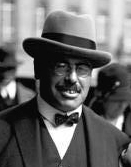 W
WRudolf Hilferding was an Austrian-born Marxist economist, socialist theorist, politician and the chief theoretician for the Social Democratic Party of Germany (SPD) during the Weimar Republic, being almost universally recognized as the SPD's foremost theoretician of this century. He was also a physician.
 W
WJohn Atkinson Hobson was an English economist and social scientist. Hobson is best known for his writing on imperialism, which influenced Vladimir Lenin and his theory of underconsumption.
 W
WHow Europe Underdeveloped Africa is a 1972 book written by Walter Rodney that describes how Africa was deliberately exploited and underdeveloped by European colonial regimes. One of his main arguments throughout the book is that Africa developed Europe at the same rate as Europe underdeveloped Africa.
 W
WImperialism: A Study (1902), by John A. Hobson, is a politico–economic discourse about the negative financial, economic, and moral aspects of imperialism as a nationalistic business enterprise. Hobson argues that capitalist business activity brought about imperialism.
 W
WImperialism, the Highest Stage of Capitalism (1917), by Vladimir Lenin, describes the formation of oligopoly, by the interlacing of bank and industrial capital, in order to create a financial oligarchy, and explains the function of financial capital in generating profits from the exploitation colonialism inherent to imperialism, as the final stage of capitalism. The essay synthesises Lenin's developments of Marx's theories of political economy in Das Kapital (1867).
 W
WInternational inequality refers to inequality between countries, as compared to global inequality, which is inequality between people across countries. International inequality research has primarily been concentrated on the rise of international income inequality, but other aspects include educational and health inequality, as well as differences in medical access. Reducing inequality within and among countries is the 10th goal of the UN Sustainable Development Goals and ensuring that no one is left behind is central to achieving them. Inequality can be measured by metrics such as the Gini coefficient.
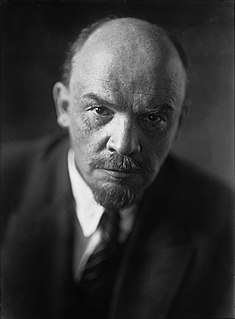 W
WVladimir Ilyich Ulyanov, better known by his alias Lenin, was a Russian revolutionary, politician, and political theorist. He served as the first and founding head of government of Soviet Russia from 1917 to 1924 and of the Soviet Union from 1922 to 1924. Under his administration, Russia, and later the Soviet Union, became a one-party socialist state governed by the Soviet Communist Party. A Marxist, he developed a variant of communist ideology known as Leninism.
 W
WColin Temple Leys is a British political economist who is emeritus professor of political studies at Queen's University, Canada, and an honorary research professor at Goldsmiths, University of London. From 1956 to 1960 he taught at Balliol College, Oxford and then became the first Principal of Kivukoni College in Dar es Salaam, before holding chairs at Makerere University, Uganda, and the universities of Sussex, Nairobi, Sheffield, and Queen's. Until his retirement from Queen's in 1996 his research focussed mainly on African development. He has since worked mainly on the political economy of Britain, but from 1997 to 2010 he was co-editor with Leo Panitch of the Socialist Register. From 2000 onwards he became involved in the defence of the British National Health Service (NHS) against successive government attempts to marketise and privatise it. With Stewart Player he co-authored two books on the NHS and was one of the founders of a respected think tank, the Centre for Health and the Public Interest.
 W
WRosa Luxemburg was a Polish Marxist economist, anti-war activist, philosopher and revolutionary socialist. Successively, she was a member of the Social Democracy of the Kingdom of Poland and Lithuania (SDKPiL), the Social Democratic Party of Germany (SPD), the Independent Social Democratic Party (USPD) and the Communist Party of Germany (KPD). Born and raised in an assimilated Jewish family in Poland, she became a German citizen in 1897.
 W
WErnest Ezra Mandel (Dutch: [manˈdɛl]; also known by various pseudonyms such as Ernest Germain, Pierre Gousset, Henri Vallin, Walter;, was a Belgian Marxian economist, Trotskyist activist and theorist, and Holocaust survivor. He fought in the underground resistance against the Nazis during the occupation of Belgium.
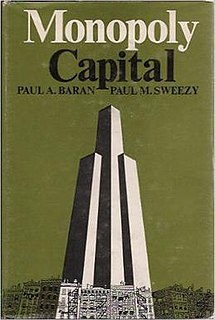 W
WMonopoly Capital: An Essay on the American Economic and Social Order is a 1966 book by the Marxian economists Paul Sweezy and Paul A. Baran. It was published by Monthly Review Press. It made a major contribution to Marxian theory by shifting attention from the assumption of a competitive economy to the monopolistic economy associated with the giant corporations that dominate the modern accumulation process. Their work played a leading role in the intellectual development of the New Left in the 1960s and 1970s. As a review in the American Economic Review stated, it represented "the first serious attempt to extend Marx’s model of competitive capitalism to the new conditions of monopoly capitalism." It attracted renewed attention following the Great Recession.
 W
WMultitude: War and Democracy in the Age of Empire is a book by post-marxist philosophers Antonio Negri and Michael Hardt, published in 2004. It is the second installment of a "trilogy" also comprising Empire (2000) and Commonwealth (2009).
 W
WAntonio "Toni" Negri is an Italian Spinozistic-Marxist sociologist and political philosopher, best known for his co-authorship of Empire and secondarily for his work on Spinoza.
 W
WNeo-Marxism is a Marxist school of thought encompassing 20th-century approaches that amend or extend Marxism and Marxist theory, typically by incorporating elements from other intellectual traditions such as critical theory, psychoanalysis, or existentialism.
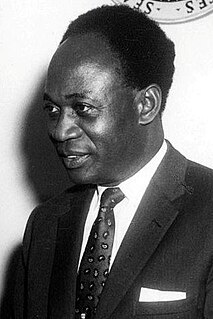 W
WKwame Nkrumah was a Ghanaian politician, political theorist, and revolutionary. He was the first Prime Minister and President of Ghana, having led the Gold Coast to independence from Britain in 1957. An influential advocate of Pan-Africanism, Nkrumah was a founding member of the Organization of African Unity and winner of the Lenin Peace Prize from the Soviet Union in 1962.
 W
WThe concept of Global North and Global South is used to describe a grouping of countries along socio-economic and political characteristics. The Global South is a term often used to identify lower-income countries on one side of the so-called divide, the other side being the countries of the Global North. As such, the term does not inherently refer to a geographical south; for example, most of the Global South is geographically within the Northern Hemisphere.
 W
WIn world systems theory, the periphery countries are those that are less developed than the semi-periphery and core countries. These countries usually receive a disproportionately small share of global wealth. They have weak state institutions and are dependent on – according to some, exploited by – more developed countries. These countries are usually behind because of obstacles such as lack of technology, unstable government, and poor education and health systems. In some instances, the exploitation of periphery countries' agriculture, cheap labor, and natural resources aid core countries in remaining dominant. This is best described by dependency theory, which is one theory on how globalization can affect the world and the countries in it. It is, however, possible for periphery countries to rise out of their status and move into semi-periphery or core status. This can be done by doing things such as industrializing, stabilizing the government and political climate, etc.
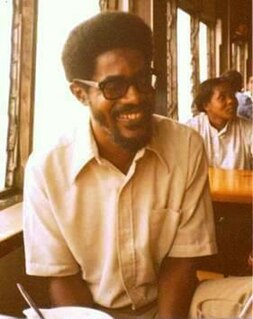 W
WWalter Anthony Rodney was a prominent Guyanese historian, political activist and academic. He was assassinated in 1980.
 W
WThe Second World is a term used during the Cold War for the industrial socialist states that were under the influence of the Soviet Union. In the first two decades following World War II, 19 communist states emerged; all of these were at least originally within the Soviet sphere of influence, though some broke with Moscow and developed their own path of socialism while retaining Communist governments. Most communist states remained part of this bloc until the fall of the Soviet Union in 1991; afterwards, only four Communist states remained: China, Cuba, Laos, and Vietnam. Along with "First World" and "Third World", the term was used to divide the states of Earth into three broad categories.
 W
WIn world-systems theory, the semi-periphery countries are the industrializing, mostly capitalist countries which are positioned between the periphery and core countries. Semi-periphery countries have organizational characteristics of both core countries and periphery countries and are often geographically located between core and peripheral regions as well as between two or more competing core regions. Semi-periphery regions play a major role in mediating economic, political, and social activities that link core and peripheral areas.
 W
WJoseph Vissarionovich Stalin was a Georgian revolutionary and Soviet political leader who governed the Soviet Union from 1924 until his death in 1953. He served as both General Secretary of the Communist Party of the Soviet Union (1922–1952) and Chairman of the Council of Ministers of the Soviet Union (1941–1953). Despite initially governing the country as part of a collective leadership, he ultimately consolidated power to become the Soviet Union's dictator by the 1930s. A communist ideologically committed to the Leninist interpretation of Marxism, Stalin formalised these ideas as Marxism–Leninism while his own policies are known as Stalinism.
 W
WSuperprofit, surplus profit or extra surplus-value is a concept in Karl Marx's critique of political economy subsequently elaborated by Vladimir Lenin and other Marxist thinkers.
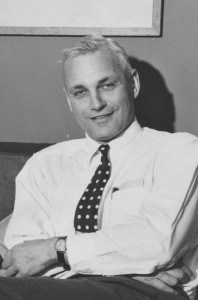 W
WPaul Marlor Sweezy was a Marxist economist, political activist, publisher, and founding editor of the long-running magazine Monthly Review. He is best remembered for his contributions to economic theory as one of the leading Marxian economists of the second half of the 20th century.
 W
WThe term "Third World" arose during the Cold War to define countries that remained non-aligned with either NATO or the Warsaw Pact. The United States, Canada, Japan, South Korea, Western European nations and their allies represented the "First World", while the Soviet Union, China, Cuba, Vietnam and their allies represented the "Second World". This terminology provided a way of broadly categorizing the nations of the Earth into three groups based on political and economic divisions. Since the fall of the Soviet Union and the end of the Cold War, the term Third World has decreased in use. It is being replaced with terms such as developing countries, least developed countries or the Global South. The concept itself has become outdated as it no longer represents the current political or economic state of the world and historically poor countries have transited different income stages.
 W
WThird-Worldism is a political concept and ideology that emerged in the late 1940s or early 1950s during the Cold War and tried to generate unity among the nations that did not want to take sides between the United States and the Soviet Union. The concept is closely related but not identical to the political theory of Maoism–Third Worldism.
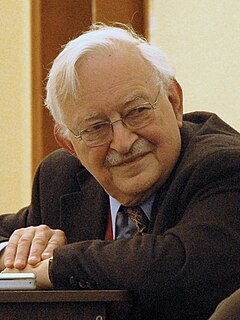 W
WImmanuel Maurice Wallerstein was an American sociologist and economic historian. He is perhaps best known for his development of the general approach in sociology which led to the emergence of his world-systems approach. He was a Senior Research Scholar at Yale University from 2000 until his death in 2019, and published bimonthly syndicated commentaries through Agence Global on world affairs from October 1998 to July 2019.
 W
WWorld-systems theory is a multidisciplinary approach to world history and social change which emphasizes the world-system as the primary unit of social analysis.